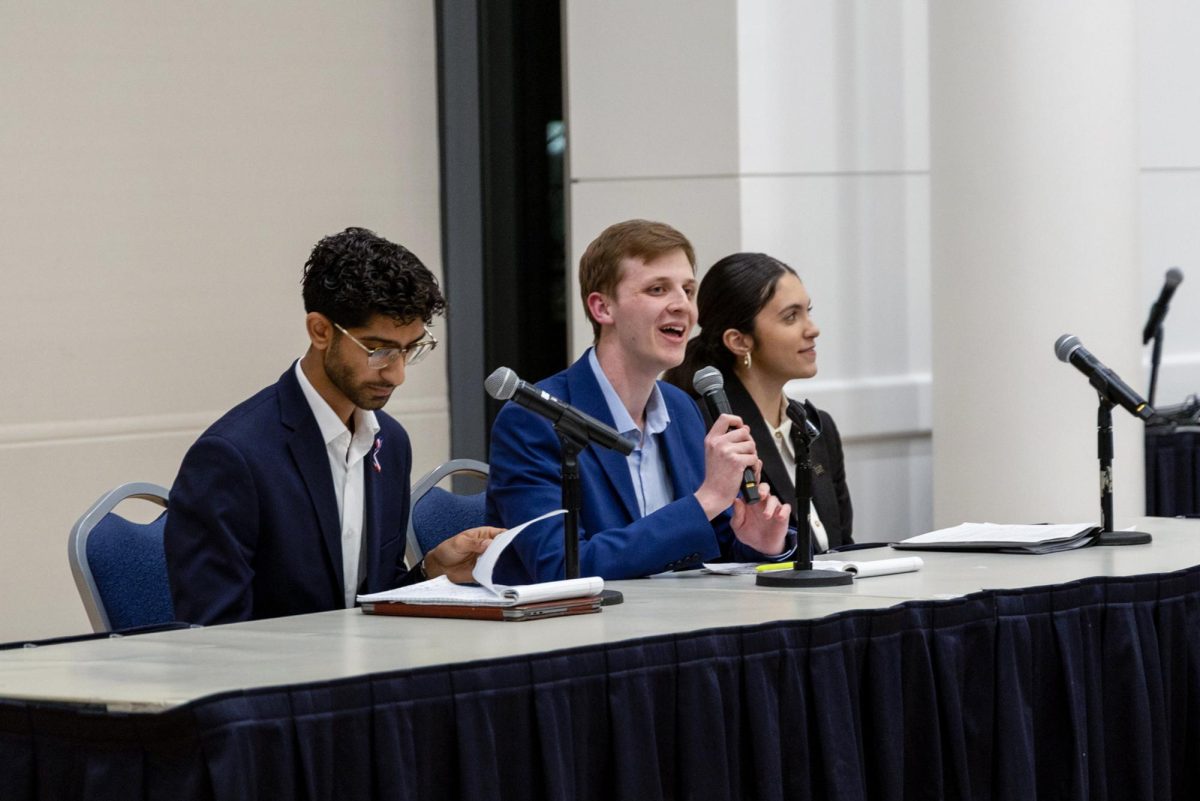After months of anticipation, the University received its first shipment of 500 H1N1 vaccinations and began distributing the vaccine on Friday, a University official announced last week.
Dr. Isabel Goldenberg, director of the Student Health Service, said the University received the H1N1 vaccines Thursday morning, totaling 200 nasal sprays and 300 injections. SHS began distributing this first shipment Friday to “high-risk groups,” which include pregnant women and caregivers for children younger than six months of age. Some student staffers for GW Housing Programs were also able to get the vaccine, which was offered free of charge.
Because many students do not fall into these two “high-risk” groups, Goldenberg said the University’s H1N1 task force will determine the next group to receive the remainder of these 500 vaccinations according to guidelines from the Centers for Disease Control and Prevention.
“CDC guidelines dictate that health care workers, emergency response workers and patients with chronic medical conditions are the next priority group for H1N1 vaccinations,” Goldenberg said.
More H1N1 vaccines will make their way to the University in coming weeks, Goldenberg said, but a recent Washington Post-ABC News poll found that 70 percent of college-aged people do not plan on getting the vaccine. The Post highlighted GW students in its story, which also said GW administrators requested 14,000 H1N1 vaccinations from the D.C. Department of Health, the agency distributing the vaccine.
The University rescheduled another seasonal flu clinic on Tuesday Nov. 17, where 1,400 doses of the seasonal influenza vaccine will be distributed free of charge to students, faculty and staff. The clinic will be held in the Marvin Center Grand Ballroom from 11 a.m. to 3 p.m.
The seasonal flu vaccines, which arrived Wednesday, are also available as nasal sprays or injections, and Goldenberg said students who are afraid of needles can elect to receive a nasal spray form of the vaccines.
“Most of the seasonal flu injections that are ordered are injectable through a syringe as the medication can be largely used by everyone,” Goldenberg said. “Nasal sprays can affect people with certain conditions.”
For students unable to receive a vaccination next week at the clinic, GW Campus Advisories has provided information about the vaccine and other distribution locations in the District through the D.C. Department of Health. The locations include various middle schools and recreation centers in the area during the weekends prior to the Thanksgiving holiday.
“We encourage all students who did not receive vaccinations at the last clinic to get the flu vaccine prior to leaving before the Thanksgiving holidays, as they may be in contact with family and friends from other schools and may have the possibility of getting sick,” Goldenberg said.
In October, the University was forced to postpone two scheduled seasonal influenza clinics after they exhausted the 4,500 dose supply.






